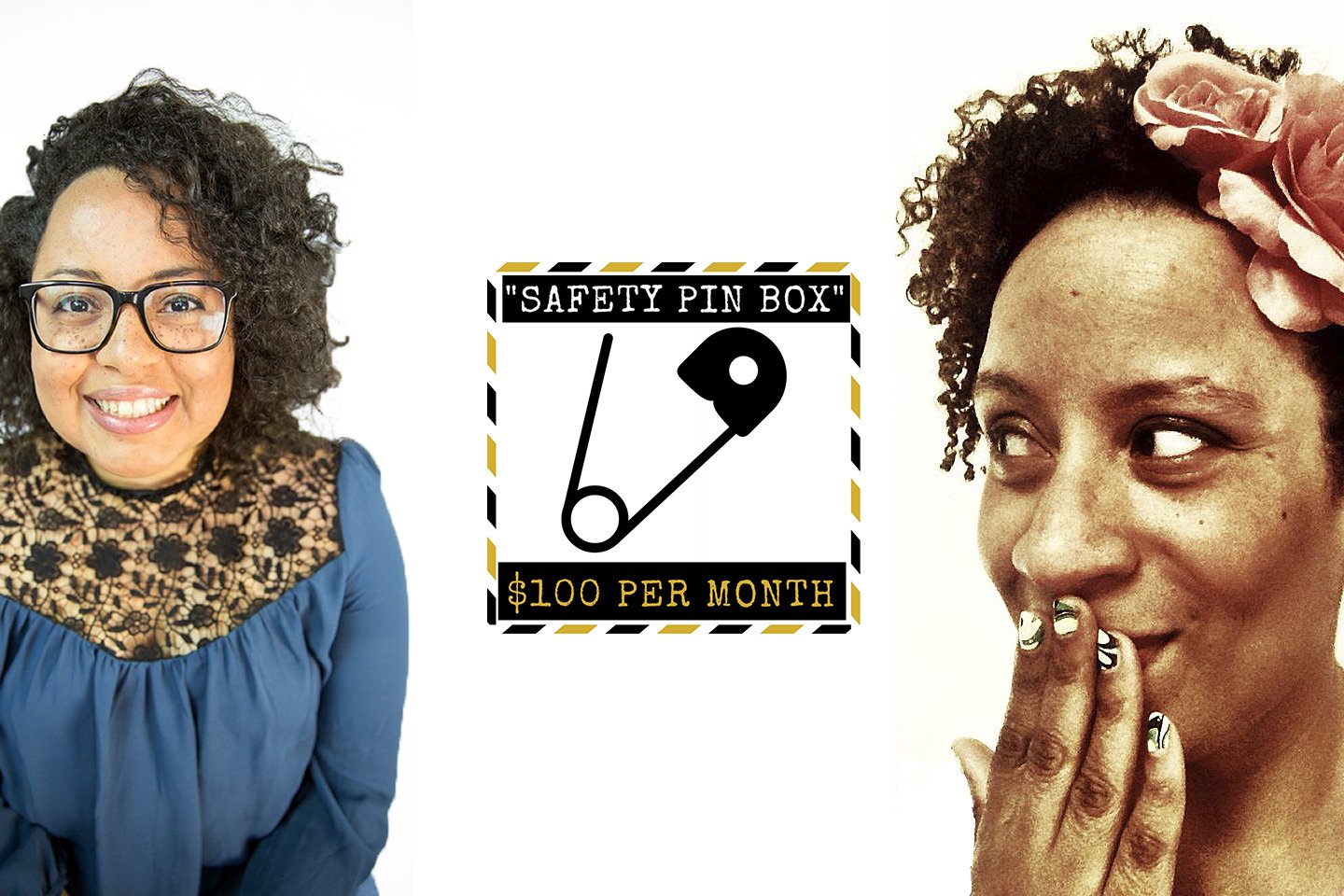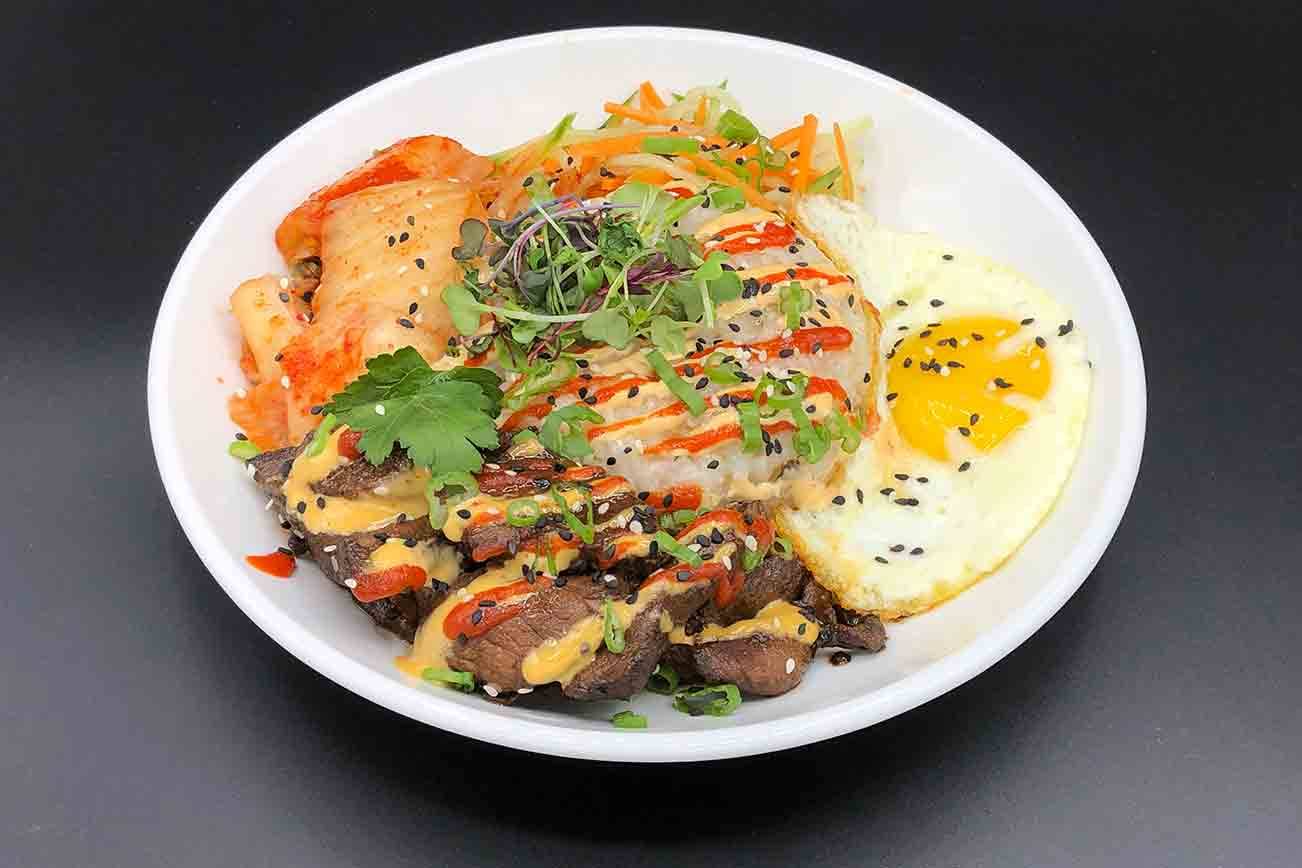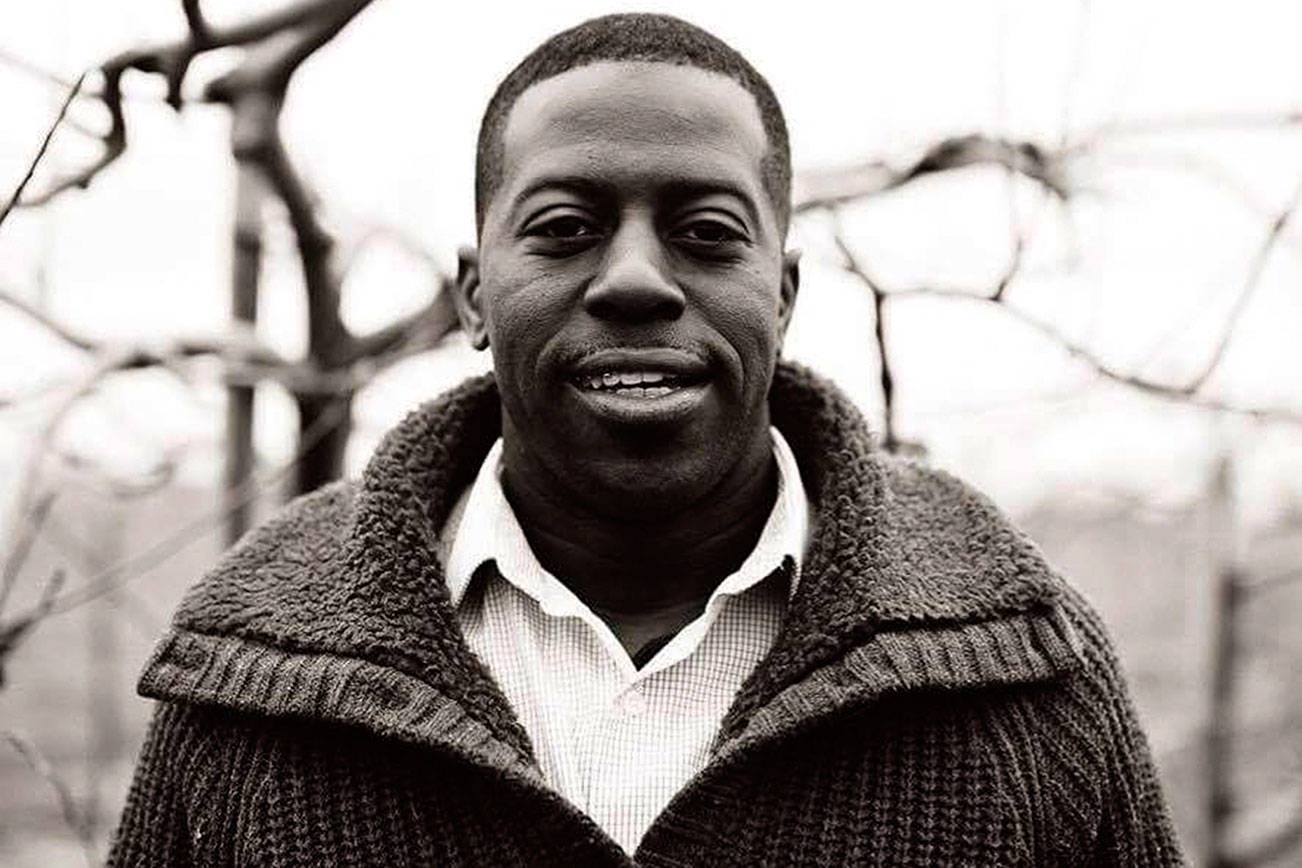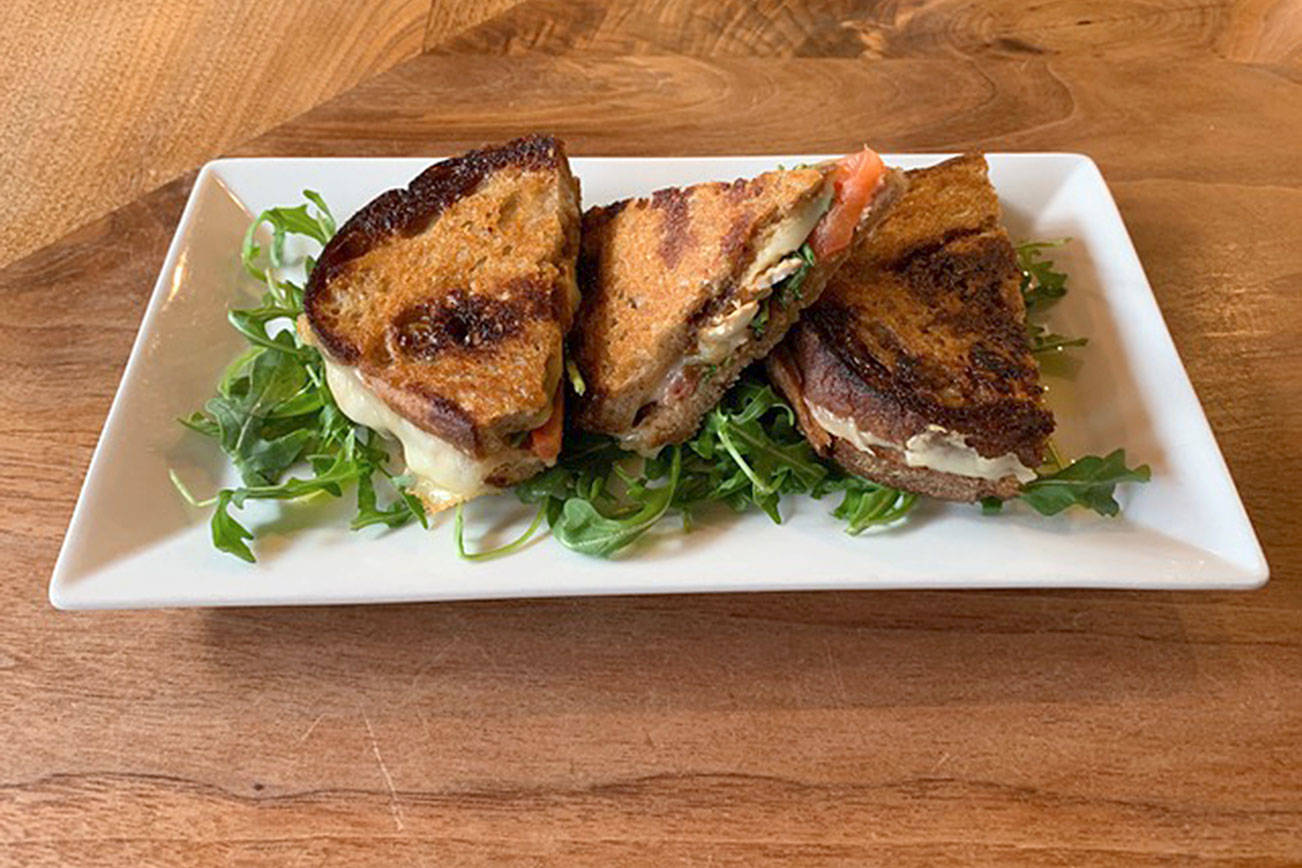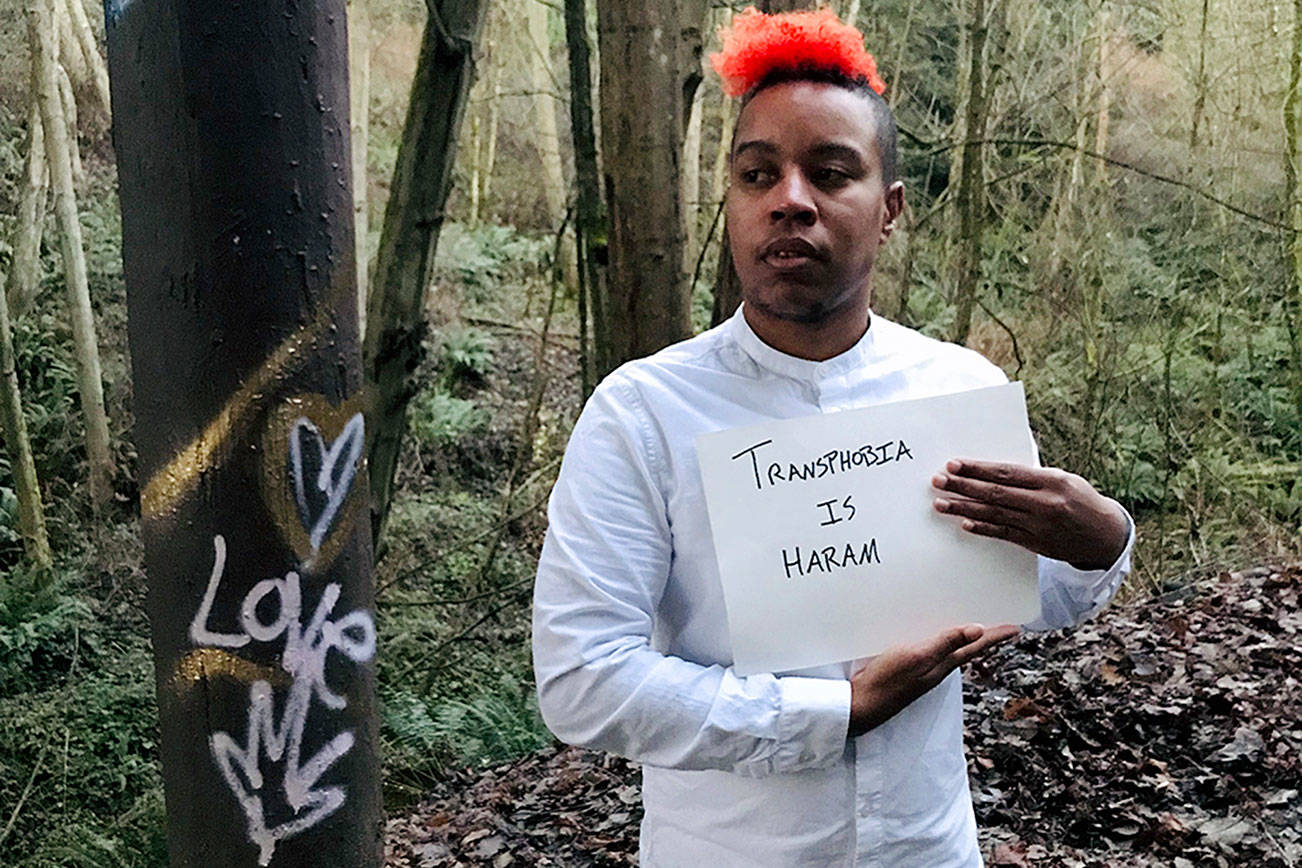“It’s one thing to say to folks, ‘Go and do the work,’ ” says Seattle activist and writer Marissa Jenae Johnson. “I certainly understand that sentiment, but it can be hard for some people to grasp.”
The work she’s referencing, of course, is visible, tangible efforts made by everyday citizens to dismantle oppressive systems like racism, ableism, and the patriarchy. Johnson, world-renowned for her work with Black Lives Matter, is a staunch advocate for sacrifice, especially when it comes to privileged white people giving up their comforts to people of color and the marginalized, who have suffered at the hands of an abusive system for hundreds of years.
As a result, Johnson, along with Ferguson Response Network founder Leslie Mac, recently created the Safety Pin Box project, a new subscription service for people who want to help in the fight against systematic oppression but don’t know what to do or where to turn. “Black women,” says Johnson, succinctly. “We’ll tell you what to do.”
Johnson and Mac met in November, a few days after the presidential election, during a trip to Jamaica with friends and colleagues. “That’s when the safety-pin-fever stuff came up,” she says, referring to a national trend of wearing safety pins to express solidarity after Trump’s election. “We thought, ‘Is this really the best response? Safety pins?’ ”
It was the first time the two had spent together, though they’d talked regularly online in what Johnson calls “a really small neighborhood” of black activists. A few weeks later they’d created the Safety Pin Box. “Black people, including me,” says Johnson, “are ingenious at using the jargon people are familiar with to further the movement. And people have backed themselves into a corner with the ‘ally’ and ‘safety pin’ language. If you wore a safety pin, it’s very easy for you to subscribe to this.”
Five days in, safetypinbox.com had already received more than 100 subscriptions. Customers can choose from four different boxes: a “Premier” box ($100) with ally tasks for the month; a “Pin Pals” box for partnership tasks ($50 each); an “E-Ally” box ($25) with one solidarity task; and a Single Use box ($50). To give the service as a gift, the best option is the Single Use box, or what the founders dub their “Revenge Box.” They say, “Send this box to a Trump supporter, bigot, or white supremacist of your choice,” and it includes a statement of donation to a cause in the name of the recipient. All boxes provide subscribers with directions for how they can help fight oppression. In return, a portion of the subscription fees (or simple donations) goes to black women for whatever they need, no questions asked. Recipients are chosen at random from a pool of people who register with the site called “Black Women Being.”
“We’re so excited for the potential to just give black women money,” says Johnson. “Black women are the best stewards of their own money.”
Johnson and Mac, in their own careers, have worked tirelessly to bring justice to communities in the face of violence against marginalized people. But with their Safety Pin Box business, the two can take hold of their work in a way they hadn’t before.
“A lot of the work we’ve done,” says Johnson, “has been very reaction-based. We’ve been responding to something that’s very traumatic. But this effort is a way of engaging with work that’s safer and more sustainable—it isn’t dependent on the news cycle and on black trauma.”
